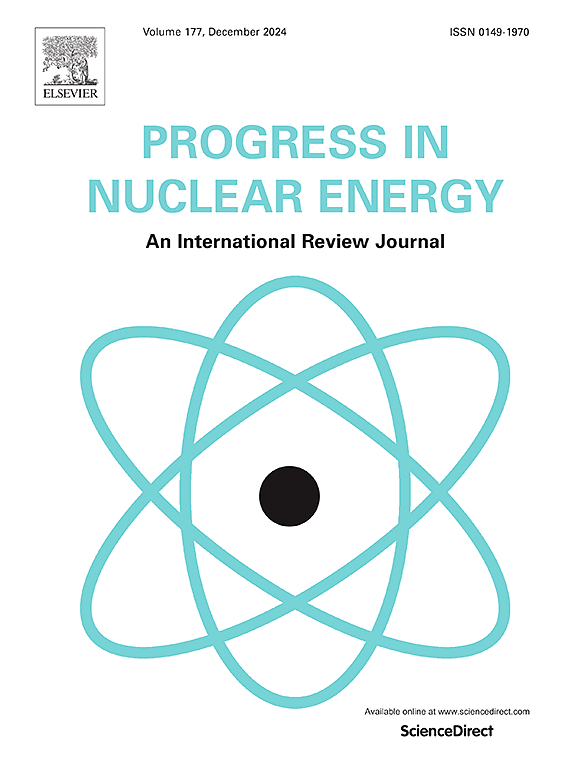Transient characteristics of supercritical carbon dioxide Brayton cycle system with or without control strategy under accident conditions
IF 3.3
3区 工程技术
Q1 NUCLEAR SCIENCE & TECHNOLOGY
引用次数: 0
Abstract
Supercritical carbon dioxide (SCO2) Brayton cycle reactor system is a popular type of small modular reactor system. It has many benefits, such as high thermal efficiency, system structure simply and compact. So it can be widely used in various scenarios. In this study, establish the SCO2 Brayton cycle system model which have multiple control models based on Modelica language. Transient conditions with and without control strategies were simulated for reactivity introduction accidents and external load loss accidents, among which the control strategies were bypass control, rotor speed control and throttle control respectively. The response characteristics of system variables in different accidents without control or under different control strategies are compared and analyzed. Then, the control effect of different control strategies is judged by the change amplitude of system parameters. Results display that the rotor speed control and throttle control can reduce the variation amplitude of system parameters in both accidents, rotor speed control can reduce the variation amplitude of representative parameters by more than 50 %, the control effect is better. Bypass control can reduce the amplitude of changes of most system variable in reactivity introduction accidents, the variation amplitude of partial parameters decreased by 7.69 %–34.17 %. But it can not play the role of reducing the changes of system variable in external load loss accidents. Therefore, the control effect of bypass control should be judged according to the actual situation. The research results can a provide reference for the study about formulation and selection of control strategies for SCO2 Brayton cycle systems.
求助全文
约1分钟内获得全文
求助全文
来源期刊

Progress in Nuclear Energy
工程技术-核科学技术
CiteScore
5.30
自引率
14.80%
发文量
331
审稿时长
3.5 months
期刊介绍:
Progress in Nuclear Energy is an international review journal covering all aspects of nuclear science and engineering. In keeping with the maturity of nuclear power, articles on safety, siting and environmental problems are encouraged, as are those associated with economics and fuel management. However, basic physics and engineering will remain an important aspect of the editorial policy. Articles published are either of a review nature or present new material in more depth. They are aimed at researchers and technically-oriented managers working in the nuclear energy field.
Please note the following:
1) PNE seeks high quality research papers which are medium to long in length. Short research papers should be submitted to the journal Annals in Nuclear Energy.
2) PNE reserves the right to reject papers which are based solely on routine application of computer codes used to produce reactor designs or explain existing reactor phenomena. Such papers, although worthy, are best left as laboratory reports whereas Progress in Nuclear Energy seeks papers of originality, which are archival in nature, in the fields of mathematical and experimental nuclear technology, including fission, fusion (blanket physics, radiation damage), safety, materials aspects, economics, etc.
3) Review papers, which may occasionally be invited, are particularly sought by the journal in these fields.
 求助内容:
求助内容: 应助结果提醒方式:
应助结果提醒方式:


